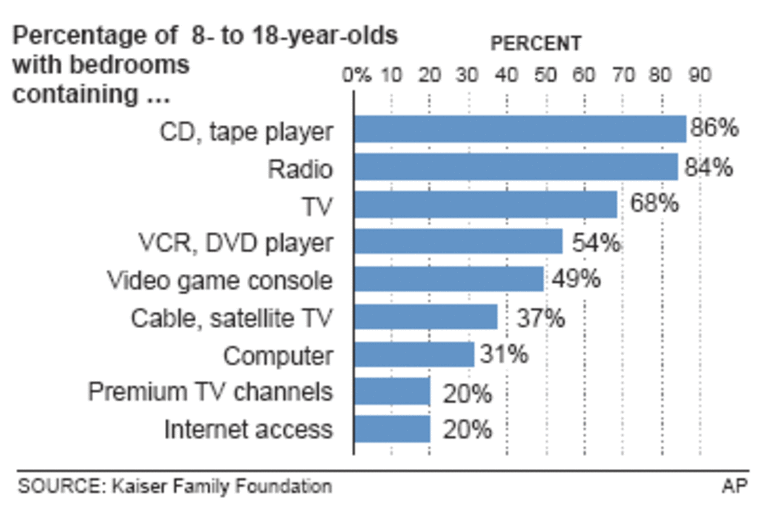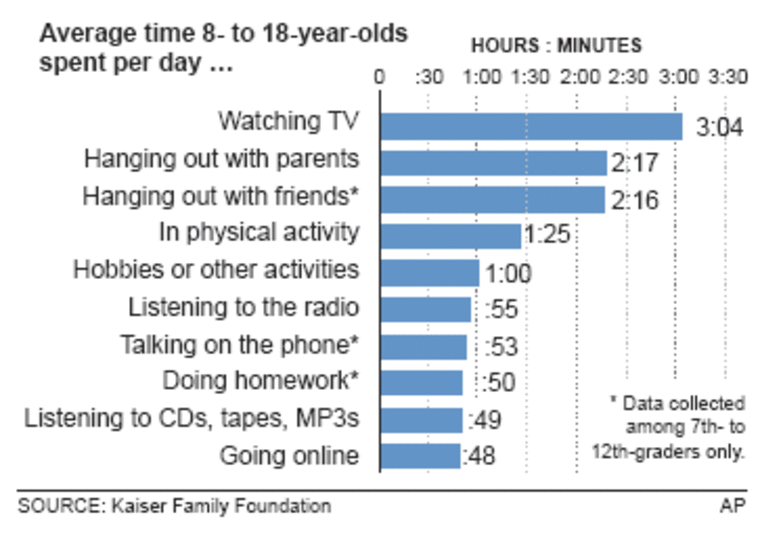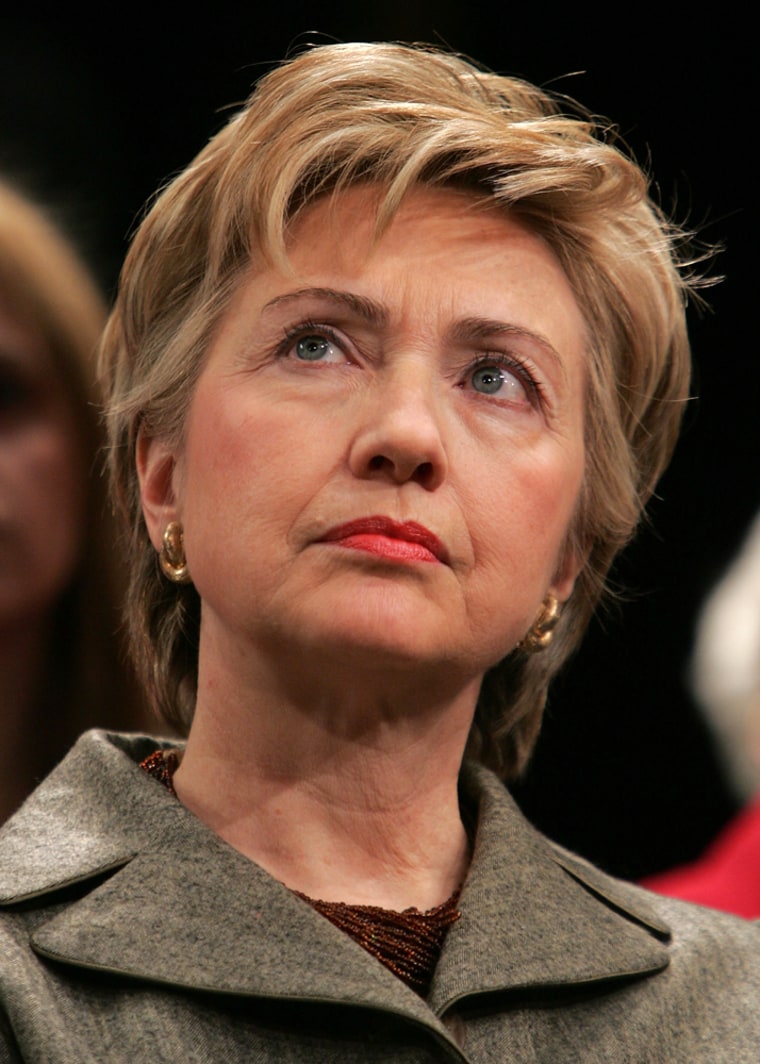Sen. Hillary Clinton, D- N.Y., appeared Wednesday at a Capitol Hill press conference with conservative Republican senators Rick Santorum of Pennsylvania and Sam Brownback of Kansas and conservative Democratic Sen. Joe Lieberman of Connecticut to tout their request for $90 million in federal funds for research on how the Internet, i-Pods, and other electronic media affect children's emotional and behavioral development.
The quartet pointed to research by the Kaiser Family Foundation reporting that on average American children spend 6.5 hours a day watching television, staring at Web sites, or using other electronic media.
“We are exposing children to so much media that it is becoming the dominant force in so many children’s lives,” Clinton told reporters.
Hard-shelled cynics might portray her alliance with Santorum, Brownback and Lieberman as a Clinton shift to a more conservative stance, just as some have so interpreted her Jan. 25 speech which stressed the need for teenage sexual abstinence.
But Clinton talked about abstinence in her speech to the abortion rights group NARAL six years ago, even if she didn’t make it her primary focus.
And she co-sponsored the same Santorum-Brownback-Lieberman bill on media exposure last year.
Concerns back in 1996
As she explained in an interview with MSNBC.com Wednesday, her efforts to alert parents to the potentially damaging effects of television date back to Bill Clinton’s presidency.
“We did the V-chip during the Clinton administration, but we didn’t have the full-court press, media public education campaign,” she said.
Clinton argued that “when you tell parents who are working longer hours … single-parent families doing the best they can, that maybe they should think twice about using the television as a baby-sitter, you’ve got to have a lot of good evidence.” Hence her request for $90 million for research.
She also spoke of the need for “media literacy” education and public service announcements on television to warn parents about the effects of exposure to electronic media.

Could the research pave the way for tighter federal regulation of media content? Already Sen. Ted Stevens, R- Alaska, is pushing his bill to increase the penalties for indecent TV and radio programming.
“It’s about looking at both content and process,” Clinton said. She referred to a Kaiser Foundation report last year which found that heavy exposure to TV for children under age two created agitation and diminished ability to concentrate.
Since pundits see every move Clinton makes as a maneuver in a yet-unannounced presidential campaign, Wednesday’s event had the effect of underscoring the idea the former First Lady has not been a doctrinaire cultural liberal and that she has consistently favored working towards conservative goals (preservation of the family, protection of children) by using activist government means.
Conservative ends, big government means
Clinton’s is not a confrontational "shame on Hollywood and TV programmers" approach as Lieberman and former Education Secretary Bill Bennett used in the 1990s.
But Wednesday’s event sketched the outline of plausible Clinton candidacy: she could run as a Lieberman Democrat. With her charisma and by stressing her social conservatism on some issues, she could generate the "Joe-mentum" which Lieberman himself lacked in his presidential bid last year.
To be sure, Clinton has cast many roll-call votes that make conservatives cringe: for example, she voted against the bill banning the procedure known as partial-birth abortion. She battled with Santorum, a leading proponent of the ban, in a memorable Senate floor debate on that bill exactly two years ago.
Santorum’s position on media over-exposure for kids was just as newsworthy as Clinton’s stance.
For a leader of a political party that stresses “personal responsibility,” it might seem odd that Santorum sees a need for $90 million in funding to suggest to parents what many of them already believe: that television feeds attention deficit problems, facilitates indolence and obesity, and pummels children with vulgar content.
Just turn TV off?
Can’t parents simply turn off the TV and the computer and shoo the kids outside to play in the backyard, as they did in 1965, when it was TV alone that mesmerized children? Couldn’t they choose to not have a television in the house at all?
“No question about it, this is up to parents, and parents need to take more responsibility,” Santorum said, “but obviously that message hasn’t been getting through.”
He contended that advertisers and content providers need the research to see the impact of media on kids “and to understand it from a public health perspective.”

In his own household, Santorum said, he and his wife control with a pass code all television stations their children watch. “Not unless we’re there to say, ‘What are you watching?’ It’s very supervised,” he said.
When asked about parents who ban television from the home, Clinton said, “More power to them. There’s a range of parental choices that can fit into the personal responsibility of parents to protect their children and to monitor their children but it’s not available to a lot of families, when you think about so many families that are working so hard these days or single mothers trying to provide decent income for their children.”
